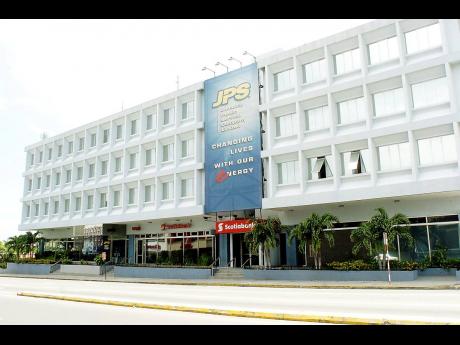BILLING MYSTERY
JPS faces scrutiny over diesel dependency, application of waiver after bloated post-Beryl charges
There are questions surrounding the length of time the Jamaica Public Service Company (JPS) relied on automotive diesel oil (ADO) for fuel, which it said caused the dramatic spike in customers’ bills following the passage of Hurricane Beryl.
The power company requested and received a waiver of the special consumption tax on ADO for electricity generation from the Ministry of Finance for the month of July after New Fortress’ liquefied natural gas (LNG) plant was shut down in anticipation of the storm.
But Gleaner sources confirmed yesterday that the plant was inactive for five days between July 1 and 6 and would not have caused the JPS to continue its dependency on ADO for the month. The Gleaner was also told that JPS reverted to the use of LNG at 9 p.m. on July 6.
Multiple attempts by The Gleaner to reach JPS’s Director of Corporate Communications Winsome Callum and the company’s Media and Public Relations Manager Audrey Williams for clarity on the matter were unsuccessful.
ONE-MONTH WAIVER
Yesterday, Finance Minister Dr Nigel Clarke noted that JPS’s reliance on ADO was not anticipated to be long, though the ministry granted a one-month waiver.
“The Government wouldn’t have known how long JPS would have had to rely on ADO. It would have been reasonable to expect that LNG supply would have been restored shortly after the passage of Beryl,” Clarke told The Gleaner.
He declined to comment further on the matter.
On July 12, the finance ministry told JPS that it would allow the application of the concessionary rate of $4.5611/litre, down from $44.90/litre, for the month as it had requested.
The JPS had previously informed the ministry in a July 1 letter that New Fortress had advised that it would cease the supply of gas from its floating storage and regasification unit stationed offshore at Old Harbour ahead of the passage of Beryl.
Further, the JPS noted the “significant” tariff impact from the switch to ADO to generate electricity for two reasons.
It said ADO price is markedly higher than LNG and the appreciably higher SCT applied to ADO since November 2021 (from $4.5611/litre to $44.90/litre).
“The increase in the fuel rate from these two factors is further compounded on customers’ bills when GCT is applied. JPS is concerned that this pass-through cost will unnecessarily increase the burden on households and businesses as they struggle to recover from the hurricane, and is an unintended consequence, a view we presume the Government shares,” the letter to the finance ministry said.
UNCLEAR OF BILLING TERMS
Still, it remains unclear whether customers were billed accordingly, in terms of the days JPS relied on ADO and when it went back to using LNG.
The company said the use of ADO and the exchange rate caused the increase in bills.
It said the fuel charge that customers see on their bills is heavily influenced by the actual costs associated with purchasing the fuel used to generate electricity for the period.
“As a precautionary measure against potential hurricane damage, New Fortress Energy – the liquefied natural gas supplier, had to take the gas facility offline just before the hurricane, to protect it from damage. The switch of dependent generating plants from LNG to the significantly more expensive fuel, automotive diesel oil to generate electricity for some days, resulted in higher associated costs reflected in customers’ bills,” JPS said yesterday but did not indicate the number of days.
Additionally, The Gleaner has learnt that SCT charges are applied at the end of the month and based upon the use of the fuel.
The company is in the hot seat amid growing complaints over bills received for the July-August period.
The Office of Utilities Regulation (OUR) confirmed yesterday that between July 1 and August 19, it received 131 complaints regarding bill disputes/questionable bills.
For January to June of this year, it received 264 complaints. For 2023, some 649 complaints were made, while 1,361 were filed for 2022. In 2021, the OUR received 1,483 complaints, and for 2020, the figure was 1,637.
Energy Minister Daryl Vaz is expected to address the issues in a press conference today along with regulatory efforts he said the OUR has made following Beryl’s passage.
The Ministry of Energy has set up dedicated email addresses to receive complaints from persons regarding their latest electricity bills, following widespread outcry over massive increases.
The ministry says the email addresses will “streamline the process for receiving and resolving complaints”.
It said JPS customers who believe their bills have been unfairly affected should submit complaints about the energy provider at jpscomplaints@mset.gov.jm and concerns about the OUR at ourcomplaints@mset.gov.jm.

